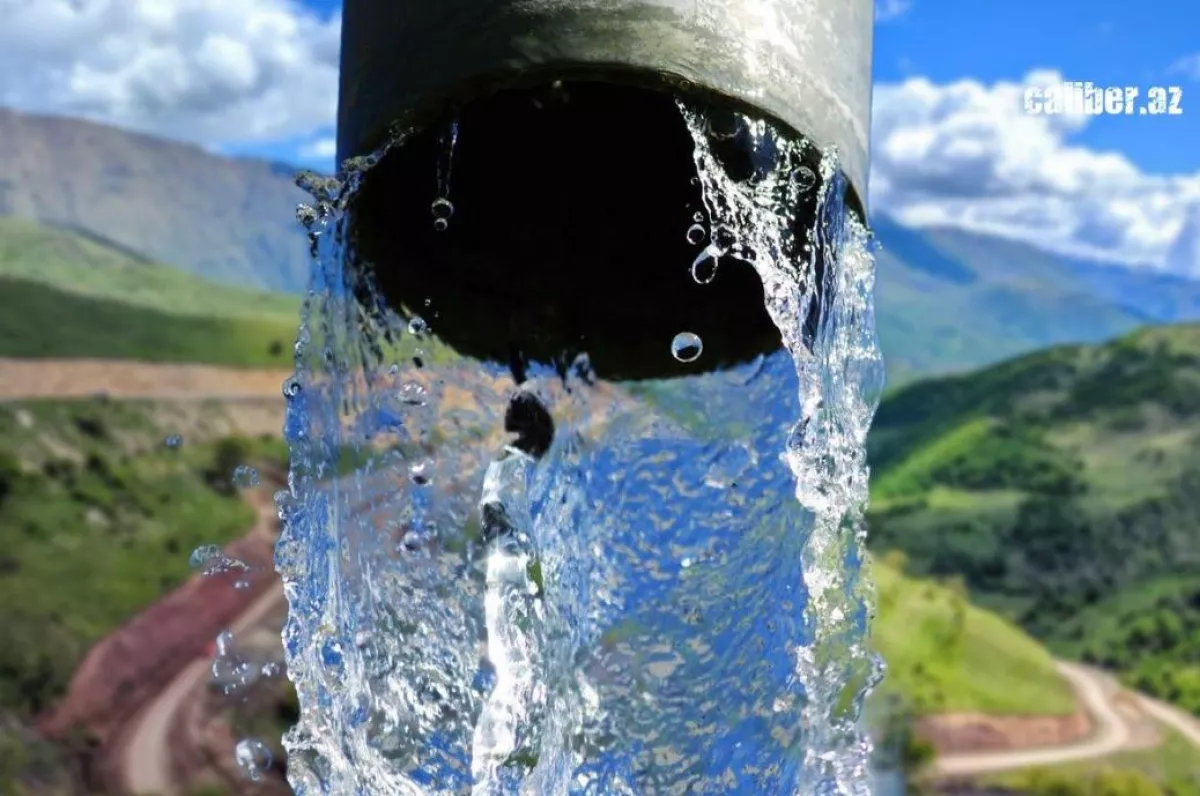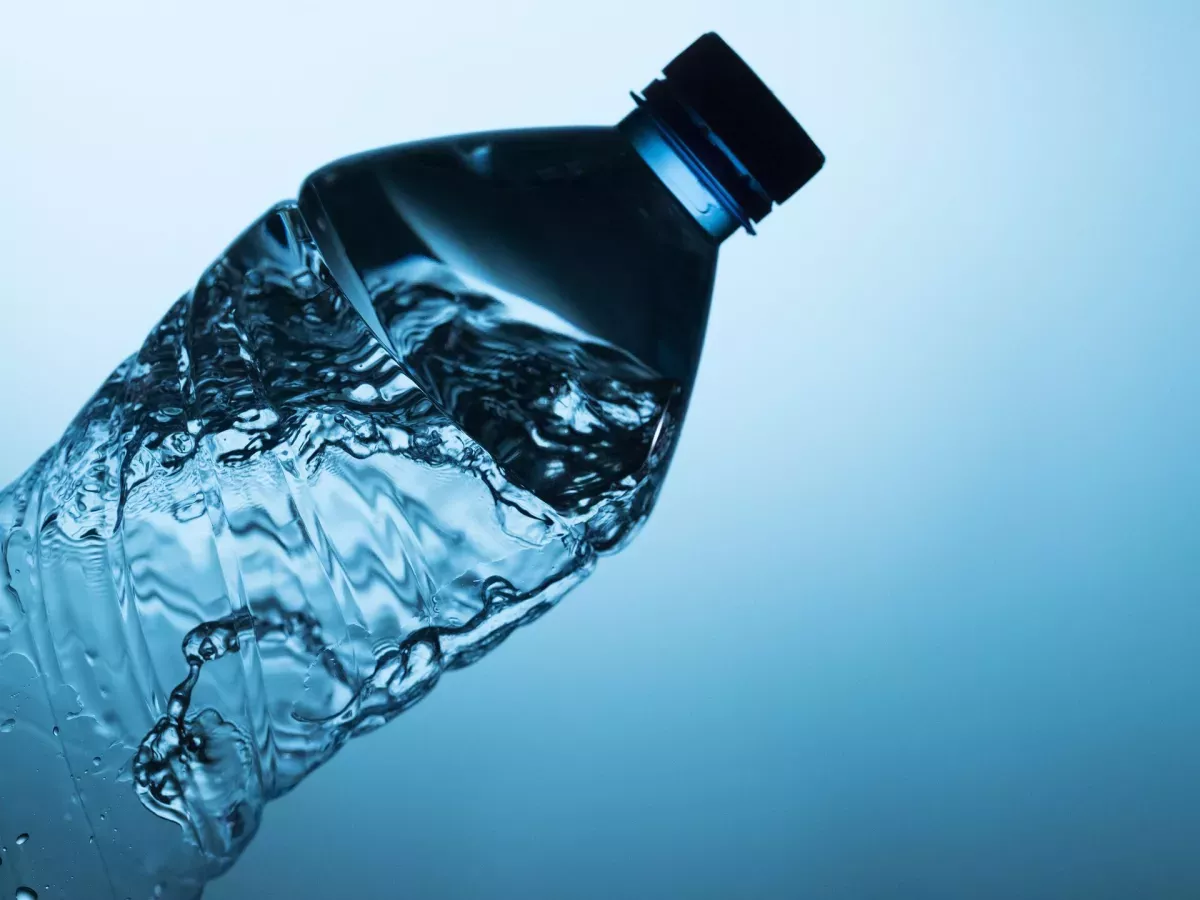Azerbaijan takes bold steps to combat water scarcity A National Strategy for the Future
The global trend of desertification, leading to a shortage of fresh water for supply and irrigation, has become quite relevant in Azerbaijan in recent years. To overcome water issues in the country, new projects are being implemented, including the construction of reservoirs in the Karabakh region, the planned installation of new main irrigation channels, and the introduction of advanced water-saving irrigation systems.
There are also expectations for the construction of a desalination plant in the Caspian Sea, along with several initiatives aimed at the prudent use of water resources. On October 10, President of Azerbaijan Ilham Aliyev approved the National Strategy on Efficient Use of Water Resources, which outlines a comprehensive plan for implementing priority areas until 2040.
“Climate change affects all countries across continents…Azerbaijan is not an exception. Each year we see decreasing water levels in our rivers, while the Caspian Sea is shrinking. Azerbaijan also faces water scarcity. Azerbaijan takes bold steps to overcome these challenges,” said President Ilham Aliyev in a recent address to the participants of the preliminary conference of the UN Climate Change Conference 2024 (Pre-COP29) held in Baku.
Indeed, in the last decade, humanity has been facing a pressing problem of diminishing freshwater reserves. According to a UNESCO, report published more than a year ago, only three to four percent of the world's water resources can currently be used as a source of drinking water, and these reserves are depleting. As a result, 2 billion people worldwide—approximately a quarter of the global population—lack access to clean water resources.
Recent global climate changes have accelerated desertification in the South Caucasus countries: specifically, in Azerbaijan, water balance indicators have decreased by 15–20% over the last 20 years. The series of severe droughts observed since 2018 has led to accelerated glacier melting in the Greater and Lesser Caucasus mountains, significantly reducing the flow of mountain rivers and hastening the desiccation of the main waterways—the Kura and Araz rivers. Alongside these global climate challenges, Azerbaijan is also contending with technological and anthropogenic factors—excessive water extraction from transboundary rivers such as the Kura, Araz, and Samur in neighbouring countries—Türkiye, Iran, Russia, and Georgia—driven by increasing water scarcity for irrigation needs. The situation is exacerbated by the fact that about 70% of fresh water in Azerbaijan is used in agriculture, where there are colossal losses in ageing water channels.
Together, all these factors contribute to the depletion of water reserves: for instance, over the past six years, the volume of water flowing into the largest reservoir in the region, the Mingachevir Reservoir, has decreased by 50%. Unsurprisingly, given these factors, experts from the Food and Agriculture Organization (FAO) have included Azerbaijan among the 20 countries in the world facing the most acute shortage of irrigation water.
To overcome this negative situation, our country, as a reliable and responsible member of the international community, is contributing to the fight against the consequences of climate change. This issue is particularly relevant for Azerbaijan this year, which has been declared the " Green World Solidarity Year." Overall, in recent years, new reservoirs have been built in the republic, irrigation channels have been reconstructed, and new water supply systems and other components of water infrastructure are being designed to make better use of the water-rich potential of the Lesser Caucasus region.
A logical continuation of this work was the decree by the head of state approving the National Strategy on Efficient Use of Water Resources. According to the data presented in the strategy, a reduction in water resources in the country is likely to be observed in the coming years. According to recent studies by the World Resources Institute, Azerbaijan ranks 59th among 164 countries that will face water resource scarcity by 2050. The country is categorized as having a moderately high level of risk, with an estimated 20-40% water deficit. Furthermore, the National Report of Azerbaijan presented to the UN Framework Convention on Climate Change predicts that Azerbaijan's water resources (including transboundary water resources) will decrease by 5-10% by 2040 and by 10-15% by 2070.
In any case, the risks in the field of water supply and irrigation are quite high, and Azerbaijan must implement a series of initiatives to minimize the negative impacts of climate change. The new strategy, covering the years 2024 to 2040, includes measures for the effective use and management of water resources, prevention of pollution, modernization of irrigation systems, and utilization of water resources in the Karabakh and East Zangezur economic regions. Specifically, according to the strategy, four major reservoirs will be constructed in Azerbaijan by the end of 2027, and as a result of the expansion of water supply infrastructure, the level of access to drinking water is expected to reach 85%.

The primary goal of the new strategy is to make fuller use of the water-rich potential of the Lesser Caucasus region, which accounts for about 20% of the water resources generated in the country—consisting of a dozen large mountain rivers and approximately two and a half dozen medium and small reservoirs and natural lakes. This potential is being actively developed, and in recent years, restoration and construction work has been carried out on the Sugovushan, Khachinchay, Zabukhchay reservoirs, and the Kondalanchay complex of three reservoirs in the territories of Azerbaijan liberated from occupation. In the Gabala region, the construction of the Yengija reservoir has begun, and in the Oghuz and Sheki districts, work is underway on the Alijanchay reservoir. Additionally, to create reservoirs suited to the terrain for accumulating water from mountain rivers, construction has begun on six reservoirs, including the Hakarichay (Lachin) and Bargushadchay (Gubadly) reservoirs. The Shirvan and Karabakh irrigation canals, originating from the Mingachevir Reservoir, are also being reconstructed.
Overall, according to the action plan, the state water accounting system will be improved over the next three years, with plans to implement electronic control systems and measures to prevent illegal use of water resources. Moisture loss in agricultural land is expected to decrease by at least 10% through the adoption of modern water-saving irrigation methods, and projects will be implemented to seal irrigation channels by concreting and coating them with polymer materials. As a result of these measures, it is anticipated that access to irrigation water will increase to 90%, while water losses in the drinking water supply system are planned to be reduced to 33%, and in irrigation systems to 42%.
Additionally, the use of alternative water sources will be encouraged: within the framework of the strategy, projects for the treatment and use of wastewater are planned to be implemented by 2027. Relevant authorities have also been tasked with conducting research in the field of artificial rain technology, developing a technical and economic justification, and creating project documentation for the implementation of at least one pilot project in this area.
Another promising direction in the field of alternative water supply outlined in the strategy is the implementation of a pilot project for the production of freshwater through the construction of a seawater desalination plant in the Caspian Sea. It is worth noting that in December 2023, the water operators of Azerbaijan and Israel—Azersu OJSC and Mekorot Water Company—signed a contract for technical consultation on the seawater desalination project.








